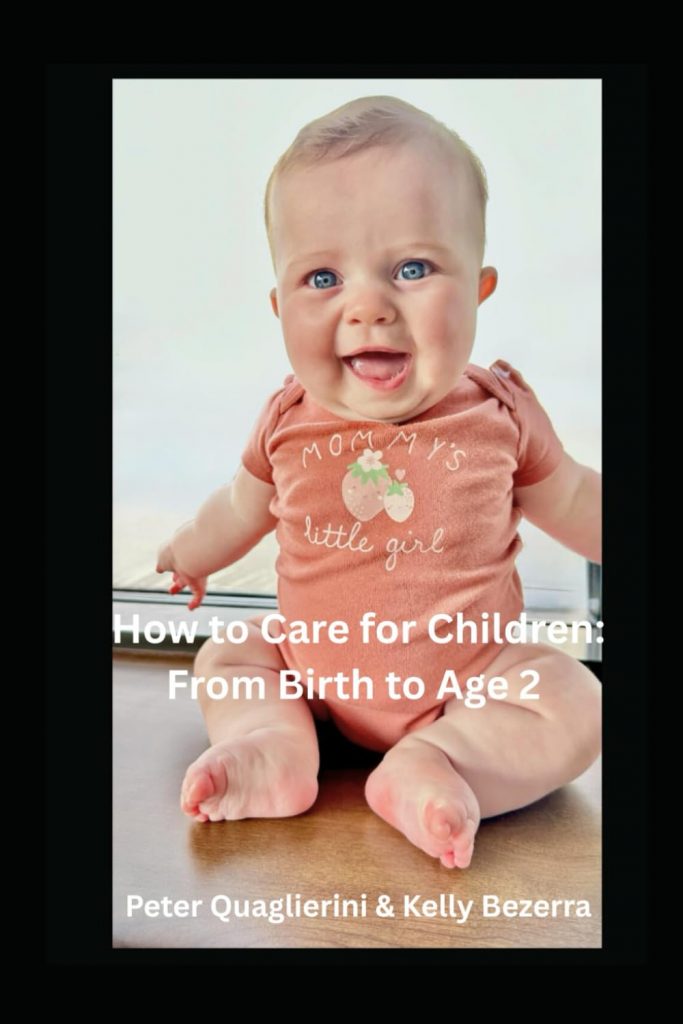When you welcome your precious bundle of joy home, mastering newborn baby care becomes your absolute top priority. The overwhelming mix of excitement and anxiety that comes with caring for your first baby is completely natural, but understanding essential baby care tips can transform uncertainty into confidence.
Understanding proper newborn baby care isn’t just about keeping your baby healthy; it’s about building the foundation for lifelong wellness and creating secure attachment bonds. This comprehensive guide provides essential baby care tips that will help you navigate the beautiful chaos of early parenthood with greater confidence and peace of mind. Effective newborn baby care combines scientific knowledge with responsive parenting, creating an environment where your infant thrives physically, emotionally, and developmentally from the very first day home.
Read more: 7 Essential Newborn Baby Care Tips Every First-Time Parent Must KnowNewborn and Infant Nutrition – AAP American Academy of Pediatrics.

Understanding Your Baby’s Unique Newborn Baby Care Needs During the Fourth Trimester
The first three months after birth represent a critical adjustment period known as the fourth trimester. Your newborn is transitioning from the secure, warm environment of the womb to the outside world, which explains many behaviors that might initially concern first time parent guide seekers.
During this phase, your baby’s nervous system continues developing, resulting in jerky movements, frequent startling, and irregular patterns. Newborns can only see clearly about 8 to 12 inches from their face, which perfectly aligns with the distance to your face during feeding times.
Read more: 7 Essential Newborn Baby Care Tips Every First-Time Parent Must KnowKey developmental expectations include:
- Limited vision range focused on close objects
- Preference for familiar sounds and smells
- Need for consistent comfort and security
- Gradual adaptation to external stimuli
Recognizing these unique characteristics of newborn baby care during the fourth trimester helps parents respond appropriately to their infant’s developmental stage and avoid unnecessary concern about normal newborn behaviors.
Mastering Essential Feeding Techniques for Optimal Growth
Proper nutrition represents one of the most critical aspects of newborn baby care, directly impacting your infant’s growth trajectory, immune system development, and long-term health outcomes.
Establishing a Successful Newborn Feeding Schedule
Creating a consistent newborn feeding schedule forms the cornerstone of effective baby care. Whether you choose breastfeeding, formula feeding, or combination feeding, understanding your baby’s hunger cues and nutritional needs ensures healthy development.

Breastfeeding optimization strategies:
- Experiment with different positions like cradle, cross-cradle, and football holds
- Ensure proper latch with lips flanged outward covering the areola
- Expect increased feeding frequency during growth spurts at 2-3 weeks, 6 weeks, and 3 months
- Focus on frequent feeding during the first 6-8 weeks to establish milk supply
Breastfeeding Recommendations and Guidance – CDC
11 Nutrition Brain Health Focus Foods That Actually Boost Your IQ
The Critical Importance of Breastfeeding for Newborn Development
Breastfeeding provides unmatched nutritional and emotional benefits for both mother and baby. Breast milk contains the perfect combination of proteins, fats, vitamins, and antibodies specifically designed for your newborn’s developing immune system and brain growth.
Essential breastfeeding benefits include:
- Natural antibodies that protect against infections and diseases
- Optimal nutrition that adapts to your baby’s changing needs
- Enhanced bonding through skin-to-skin contact and hormone release
- Reduced risk of allergies, asthma, and childhood obesity
- Lower maternal risk of breast and ovarian cancers
Understanding the science behind breastfeeding benefits empowers parents to make informed decisions about newborn baby care nutrition strategies that align with their family’s unique circumstances and capabilities.
Successful breastfeeding strategies:
- Begin breastfeeding within the first hour after birth when possible
- Feed on demand, typically every 2-3 hours during the first weeks
- Ensure proper latch with baby’s mouth covering most of the areola
- Maintain adequate maternal nutrition and hydration
- Seek support from lactation consultants when facing challenges
Formula feeding excellence:
- Follow mixing instructions precisely to avoid concentration issues
- Test temperature on your wrist rather than with your mouth
- Practice paced feeding by holding baby upright
- Watch for fullness cues like turning away or pushing the bottle
Recognizing Hunger and Fullness Signals
Learning to interpret your baby’s communication helps establish effective feeding routines. Early hunger cues include rooting, lip smacking, and bringing hands to mouth. Crying typically indicates late-stage hunger, making feeding more challenging.
Mastering these hunger cues represents a fundamental skill in newborn baby care, enabling parents to provide responsive feeding that supports healthy growth patterns and reduces unnecessary stress for both baby and caregivers.
Creating Optimal Sleep Environments and Routines
Sleep represents one of the most challenging yet crucial aspects of newborn baby care, with safe sleep practices directly impacting infant health, development, and SIDS prevention.
Understanding Newborn Baby Sleep Patterns
Baby sleep patterns can initially seem chaotic, but understanding sleep science helps establish healthy habits from the beginning. Newborns sleep 14 to 17 hours daily in short bursts, gradually developing longer sleep periods as their nervous systems mature.
Sleep environment mastery includes:
- Maintaining room temperature between 68-70°F (20-21°C)
- Using consistent white noise to mask household sounds
- Installing blackout curtains for daytime naps
- Implementing proper lighting regulation
Babies and Sleep – Sleep Foundation
Day-Night Differentiation Strategies
From birth, you can help your baby distinguish between day and night through environmental cues:
Daytime practices:
- Keep environment bright and engaging
- Maintain normal household noise levels
- Encourage social interaction during wake periods
- Handle diaper changes efficiently
Nighttime practices:
- Use dim lighting for feeds and changes
- Minimize interaction and stimulation
- Speak in quiet, gentle tones
- Move slowly and calmly
Implementing these day-night differentiation strategies as part of comprehensive newborn baby care helps establish healthy circadian rhythms more quickly, potentially leading to better sleep patterns for the entire family within the first few months.
Advanced Hygiene and Health Monitoring Practices
Maintaining proper hygiene standards forms the cornerstone of preventive newborn baby care, protecting vulnerable infants from infections while promoting healthy skin development and overall wellness.
Proper Bathing Techniques for Different Stages

Sponge bath mastery (0-2 weeks): Before the umbilical cord heals, sponge baths provide safe cleaning while protecting the cord stump. Prepare all supplies beforehand, including washcloths, towels, and clean clothes. Test water temperature with your elbow, ensuring it feels comfortably warm.
First real baths (after cord healing): Once the umbilical cord heals completely, you can transition to regular baths. Use only 2-3 inches of water for safety, support your baby’s head and neck with one hand while washing with the other, and increase frequency to 3-4 times weekly as your baby becomes more active.
Understanding proper newborn baby care hygiene practices forms the foundation for preventing infections and maintaining optimal health during those vulnerable first weeks.
Umbilical Cord Care Excellence
Proper umbilical cord care prevents infection and promotes healthy healing. Clean around the base gently with cotton swabs and water when needed. Normal healing includes some oozing, scabbing, and slight odor. Contact your pediatrician if you notice persistent bleeding, foul odor, or surrounding redness.
Proper umbilical cord maintenance exemplifies how simple newborn baby care practices can prevent complications and support the natural healing process that typically completes within two weeks of birth.
Building Secure Attachment Through Responsive Caregiving
Responsive caregiving represents the emotional foundation of newborn baby care, establishing secure attachment patterns that influence your child’s emotional regulation, social skills, and relationship patterns throughout their entire life.
Understanding Crying Patterns and Communication
Every baby develops unique communication patterns through crying, body language, and behavioral cues. Learning to interpret these signals takes patience and observation. Your baby may have different cries for hunger, tiredness, discomfort, or overstimulation.
Effective soothing strategies include:
- The “5 S’s” method: swaddling, side/stomach position (while awake), shushing, swinging, and sucking
- Skin-to-skin contact for temperature regulation and bonding
- Consistent response to baby’s needs to build trust
- Maintaining eye contact during caregiving activities
Developing effective soothing techniques represents one of the most valuable skills in newborn baby care, reducing parental stress while meeting your infant’s need for comfort and security during this vulnerable developmental period.
How to Build Stronger Family Bonds: Creating Lasting Connections at Home
Recognizing Normal Variations vs. Concerning Symptoms
Understanding normal newborn variations prevents unnecessary worry while helping you identify when professional help is needed. Normal variations include irregular breathing patterns with brief pauses, mild jaundice peaking around days 3-5, and initial weight loss of 5-10% before regaining by two weeks.
Red flag symptoms requiring immediate attention:
- Fever above 100.4°F (38°C) in babies under 3 months
- Refusing multiple feeds or showing dehydration signs
- Persistent rapid breathing, grunting, or blue coloring around lips
- Unusual difficulty waking for feeds or lack of responsiveness
Distinguishing between normal newborn variations and concerning symptoms empowers parents to practice confident newborn baby care while knowing exactly when professional medical evaluation becomes necessary for their infant’s safety.
Creating Support Systems for Sustainable Newborn Baby Care
Sustainable newborn baby care requires more than just knowledge and skills; it demands robust support systems that enable parents to maintain their own physical and emotional health while meeting their infant’s intensive care needs.
Managing Expectations and Perfectionism
Remember that perfect parenting doesn’t exist. Focus on being responsive, loving, and attentive to your baby’s needs while maintaining your own well-being. Building confidence takes time, and every parent-baby relationship develops uniquely.
Building Your Support Network
Effective support systems include family members who understand their roles, professional resources like postpartum doulas or lactation consultants, and peer connections through parenting classes or support groups. Don’t hesitate to ask for help when needed.
Professional resources to consider:
- Postpartium doulas for additional support
- Lactation consultants for breastfeeding challenges
- Pediatric care providers aligned with your values
- Mental health professionals for postpartum adjustment
Children Starting School: 7 Amazing Secrets to Transform Their Emotional Journey
Technology Integration for Modern Parenting
While technology offers helpful tools like feeding trackers, white noise apps, and video monitors, prioritize real interaction and trust your instincts over device readings when assessing your baby’s well-being.
Modern newborn baby care benefits from technology integration, but balance digital tools with human intuition for the best outcomes.
Diapering Mastery and Skin Care Essentials
Proper diapering techniques and skin care prevent common issues like diaper rash while keeping your baby comfortable. Most newborns require 8 to 12 diaper changes daily, making this one of your most frequent caregiving tasks.
Essential diapering practices: Always have all supplies within reach before beginning a change. Clean thoroughly from front to back, especially for girls, to prevent urinary tract infections. Allow air-drying time when possible before applying a new diaper, which helps prevent moisture-related skin issues.
Preventing and treating diaper rash: Change diapers promptly when wet or soiled, as prolonged exposure to moisture causes irritation. Apply a thin layer of barrier cream containing zinc oxide with each change as prevention. If rash develops, increase diaper-free time, avoid wipes temporarily and use warm water instead, and consult your pediatrician if the rash persists beyond three days or appears severe.
Choosing appropriate products: Select fragrance-free, hypoallergenic products designed specifically for newborn skin. Test new products on a small area first to check for reactions. Many parents find that simpler products work better than those with multiple ingredients.
Mastering diapering techniques as part of daily newborn baby care routines not only keeps your baby comfortable but also provides valuable opportunities for bonding, communication, and monitoring your infant’s health through diaper output patterns.
Cord care during diaper changes: Until the umbilical cord stump falls off, fold diapers down to prevent irritation and allow air circulation. Keep the area clean and dry, using only water if cleaning is necessary.
Self-Care Strategies for New Parents
Caring for yourself enables better care for your baby. Parental burnout significantly impacts your ability to provide responsive, patient care. Understanding this connection makes self-care not selfish, but essential.
Prioritizing parental wellbeing enhances newborn baby care quality because rested, emotionally balanced parents can provide more patient, responsive, and attentive caregiving that supports optimal infant development and family harmony.
Physical recovery and health: New mothers need time for postpartum healing, which varies significantly by delivery type and individual circumstances. Follow your healthcare provider’s guidance regarding activity levels, pain management, and follow-up appointments. Adequate nutrition and hydration remain crucial, especially for breastfeeding mothers who need additional calories and fluid intake.
Sleep optimization strategies: Accept that sleep patterns will be disrupted initially, but take practical steps to maximize rest quality. Sleep when your baby sleeps rather than using nap times for chores. Consider shift-based nighttime care with your partner where one person handles all nighttime needs for a designated period, allowing the other uninterrupted sleep. Accept help from trusted family or friends who can watch the baby while you rest.
Emotional wellness maintenance: Hormonal changes, sleep deprivation, and life adjustment can affect mental health. Approximately 15-20% of new mothers experience postpartum depression or anxiety, conditions requiring professional treatment. Warning signs include persistent sadness, extreme anxiety, difficulty bonding with baby, thoughts of harming yourself or baby, or inability to care for yourself or your baby.
Building sustainable routines: Create simple, manageable daily structures that accommodate your baby’s needs while preserving your wellbeing. This might include a morning routine that prioritizes basic self-care like showering and eating breakfast, designated times for connecting with your partner, and regular outdoor time even if just brief walks. Remember that routines with newborns remain flexible, not rigid.
Partner and family dynamics: Communication with your partner becomes even more critical during this transition. Discuss division of responsibilities, express needs directly rather than expecting mind-reading, and schedule brief check-ins to address concerns before they escalate. Extended family members often want to help but may need specific guidance about what’s truly helpful versus overwhelming.
Conclusion: Embracing Confident Parenthood
Mastering newborn baby care requires patience, practice, and self-compassion. Every baby is unique, and your parenting journey will be equally individual. Trust your instincts while remaining open to guidance from healthcare providers and experienced caregivers.
The overwhelming love you feel for your baby, combined with responsive caregiving and patience with yourself, provides the foundation for healthy development and strong family bonds. Remember that you’re learning and growing alongside your baby, and every day brings new understanding and deeper connection.
Your commitment to learning evidence-based newborn baby care practices demonstrates the dedication and love that will guide your parenting journey through infancy and beyond, creating lasting bonds and healthy developmental foundations.
With these comprehensive essential baby care tips and continued learning about newborn baby care best practices, you’ll develop the confidence and skills to provide your baby with exactly what they need to thrive during those precious early months.

Looking for comprehensive guidance on caring for your baby? Our book ‘How to Care for Children: From Birth to Age 2’ combines professional nanny experience with evidence based child development research. Written by Kelly and Peter, this guide provides clear, reliable advice rooted in real world childcare. Available in English, Spanish, and Portuguese on Amazon.
Click the link below your preferred language to get your copy!

1. How often should I feed my newborn baby?
Newborns typically need feeding every 2-3 hours, including during the night. Breastfed babies may feed more frequently (8-12 times per day) because breast milk digests faster than formula. Watch for hunger cues like rooting, lip smacking, or bringing hands to mouth rather than waiting for crying, which indicates late-stage hunger.
2. When should I start establishing a newborn feeding schedule?
While newborns need frequent, on-demand feeding initially, you can begin introducing gentle routine around 6-8 weeks. Focus on recognizing your baby’s natural patterns first, then gradually encourage consistent timing. Remember that growth spurts may temporarily disrupt any established schedule.
3. How many hours should a newborn sleep per day?
Healthy newborns sleep 14-17 hours daily in short periods of 2-4 hours. Baby sleep patterns are irregular initially because their circadian rhythms aren’t fully developed. Most babies begin sleeping for longer stretches (4-6 hours) around 3-4 months of age. Healthy newborn baby care includes ensuring adequate sleep patterns that support optimal brain development and immune system function.
4. What are the most important first time parent guide principles?
The most crucial principles include responding consistently to your baby’s needs, maintaining proper hygiene practices, ensuring safe sleep environments, feeding adequately every 2-3 hours, and trusting your parental instincts while seeking professional guidance when needed. Remember that every baby develops at their own pace.
5. How can I tell if my baby is getting enough nutrition?
Signs of adequate nutrition include steady weight gain after the initial newborn weight loss, producing 6-8 wet diapers daily, having regular bowel movements, appearing alert during wake periods, and reaching developmental milestones. Your pediatrician will monitor growth charts during regular checkups.
6. When should I be concerned about my newborn’s health?
Contact your pediatrician immediately for fever above 100.4°F (38°C), difficulty breathing, refusing multiple feeds, extreme lethargy, persistent vomiting, signs of dehydration, or any behavior that seems significantly different from your baby’s normal patterns. Trust your instincts when something feels wrong.
7. How can I build confidence in my essential baby care tips knowledge?
Building confidence comes through practice, education, and support. Start with basic daily routines, ask questions during pediatric visits, connect with other new parents, consider taking infant care classes, and remember that making mistakes is part of learning. Every parent feels overwhelmed initially, and seeking help demonstrates wisdom, not weakness.
Want a complete baby care guide?
Get our FREE checklist sent directly to your inbox - covering everything from birth to age 2, including daily routines, safety guidelines, and developmental milestones.
- ✅ Birth to 3 months essentials
- ✅ 4-12 months routines & alerts
- ✅ 1-2 years development & safety
Enter your email to receive instant access to the PDF




